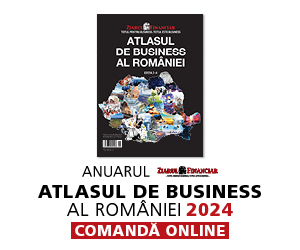Charcuterie producer, Tabco-Campofrio, the domestic unit of Spain's Campofrio Alimentacion, posted 10% higher sales in the first half of this year compared with the same period of 2005.
"We did not record a rapid growth in sales for the first few months mainly because we are witnessing a powerful assault from the key account networks (the major retailers, the most powerful of which are the hypermarkets i.e.), which are also embracing an extremely aggressive shelf tax policy," says Ovidiu Wencz, general manager of the company.
Hypermarkets are in a very strong bargaining position, as they charge producers a tax for putting their products on shelves that varies depending on where the products are positioned on the shelves and which store the products are sold in.
Wencz specified that this year the company planned to retain last year's profitability index. "We want to have a profitability index of 5-8% of net sales," says Wencz. The company this year expects to derive turnover worth 40 million euros, from the 33 million euros posted in 2005.
Wencz specified 2005 was one of the best years since Campofrio had entered the Romanian market, due both to market stability, and to investments in marketing and distribution.
Last year Campofrio ceased the importation of pork carcasses, after the development of its own farms supplied the company with the necessary raw materials it needed for this segment of its business.
The company owns two swine farms in Fantanele and Sibioara, Constanta county. According to company representatives, the local production of the two farms is likely to provide 40-50% of the firm's pork over the forthcoming period. To reach this target, the general manager of Tabco-Campofrio says the company will invest more than 10 million euros over the next 3 years, mainly to develop the farms. At the end of 2005, Tabco-Campofrio had invested a total of 6.4 million euros in its farms.
The company also uses raw material secured through partnerships with domestic farmers, as well as through imports from the EU, which the company does not want to end, for profitability reasons. The investments in farms will be backed by the rise in processing capacity. This year, the company intends to raise the production capacity of Tulcea plant from 12,500 tonnes per year to 17,000 tonnes. Late last year, the company launched a range of raw dried products and several chicken products. The company also strengthened its position in the canned pate market. Campofrio's portfolio comprises over 100 domestic products, as well as products imported from Spain. The value of investments carried out by the Romanian arm of Campofrio Alimentacion tops 20 million euros, of which around 4 million euros were earmarked for 2005.
Tabco-Campofrio operates on the segment of meat processing, its core activity, but is also expanding to the farm business, currently owning two swine farms in the Constanta area.
Tabco-Campofrio
The domestic arm of Spain's Campofrio Alimentacion
In this year's H1 reported 10% higher sales from last year
Wants to retain last year's profitability rate in 2006
Expects turnover worth 40m euros this year, from 33m euros in 2005
Has so far invested more than 20 million euros, with 4m euros earmarked last year.















































